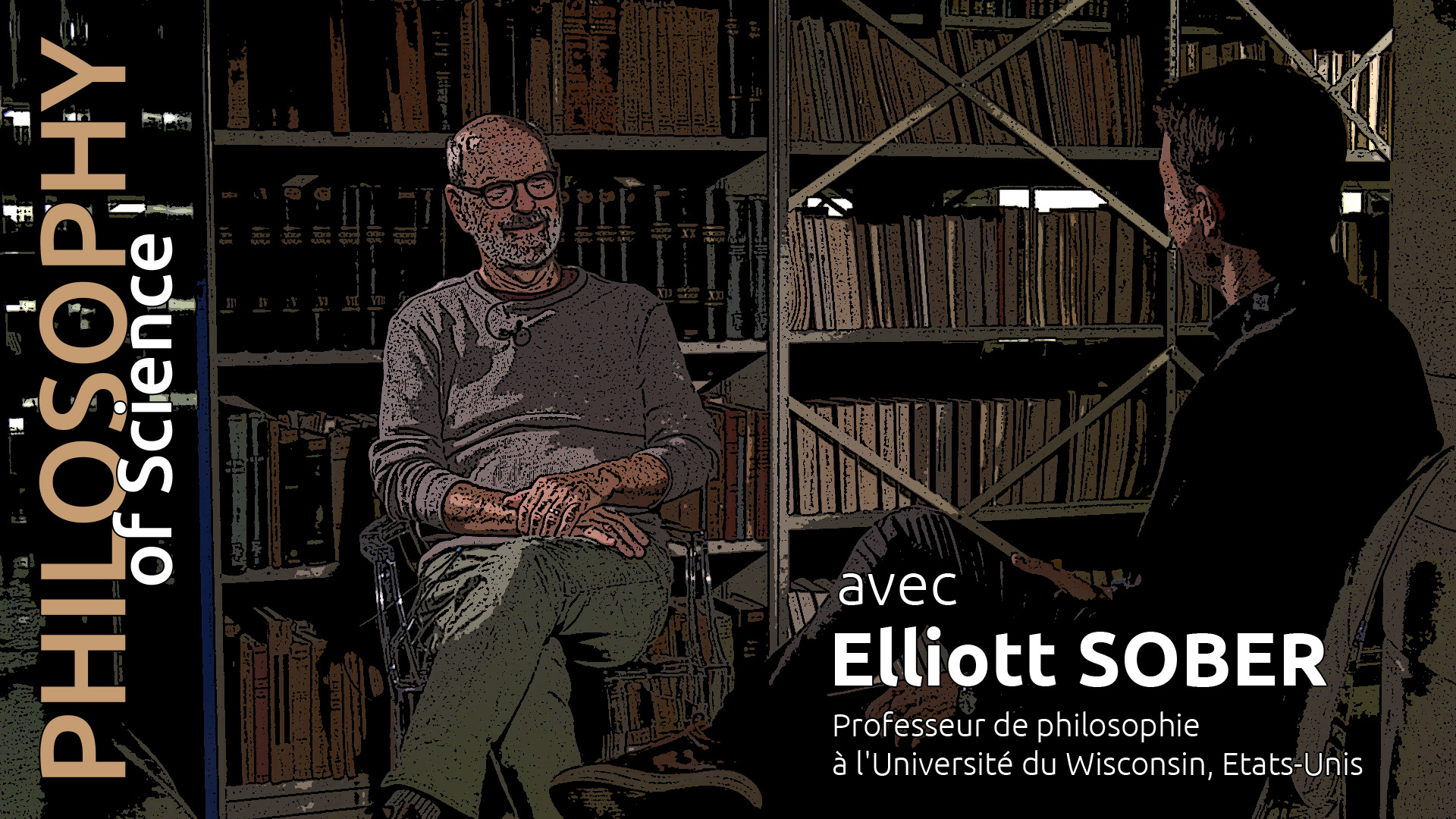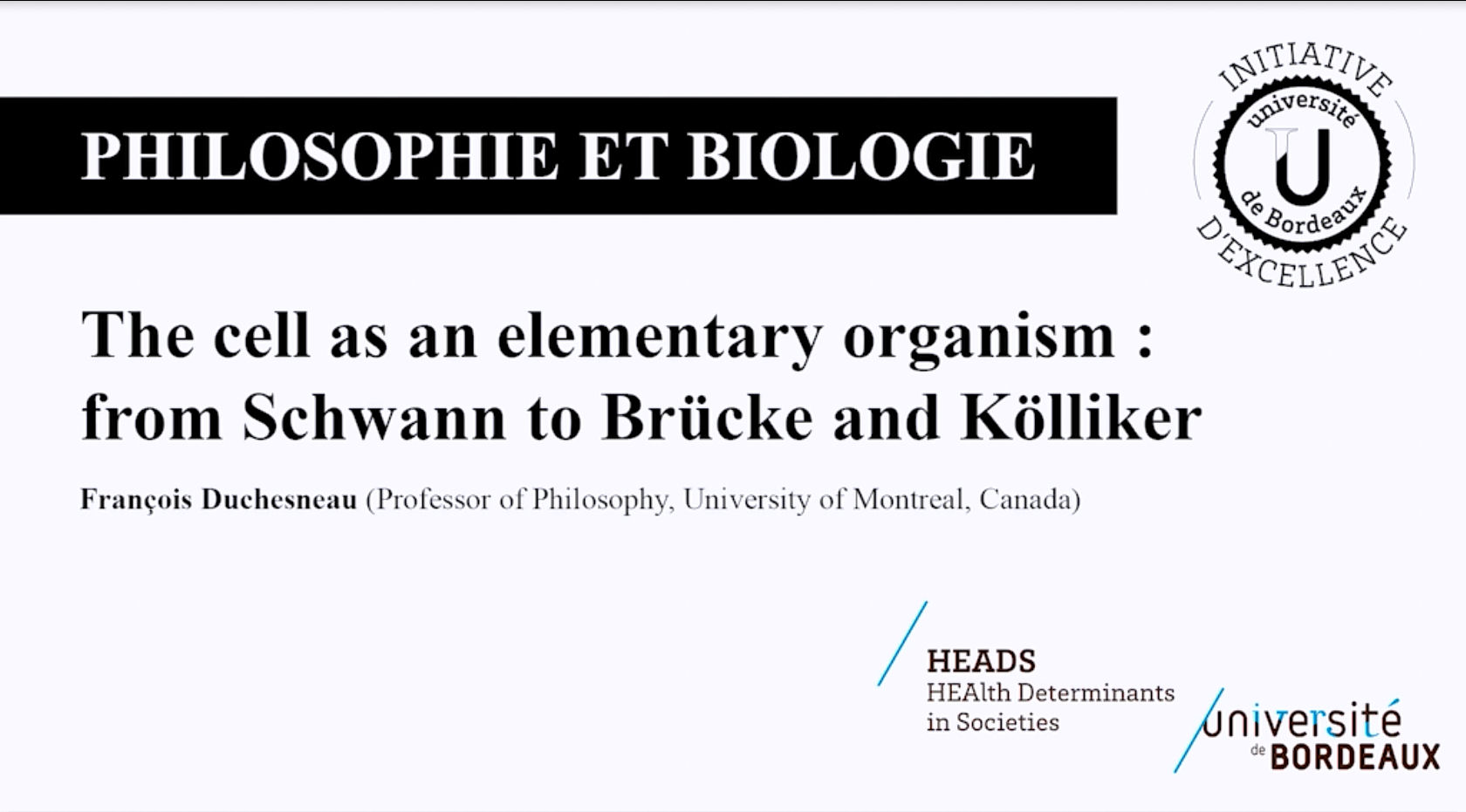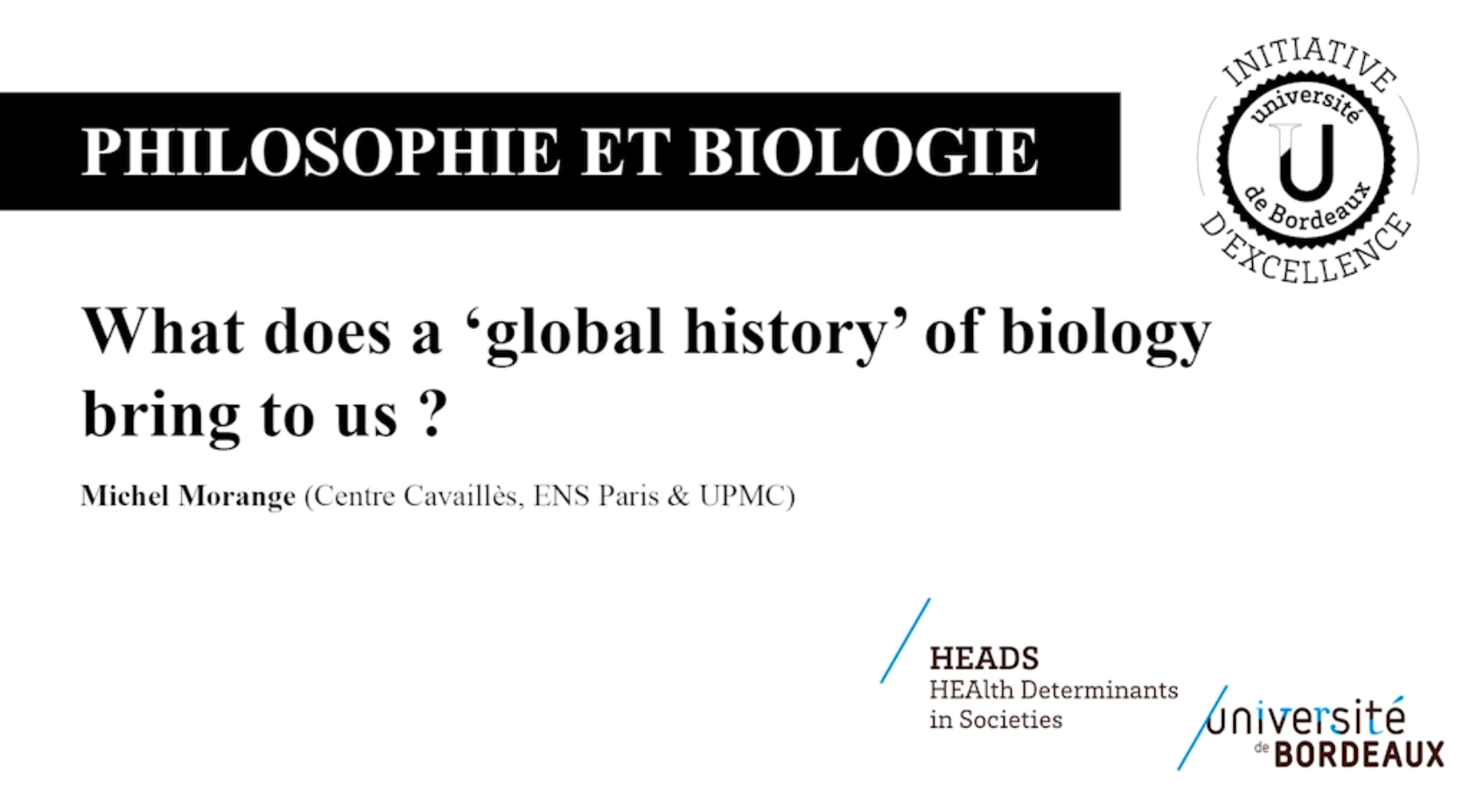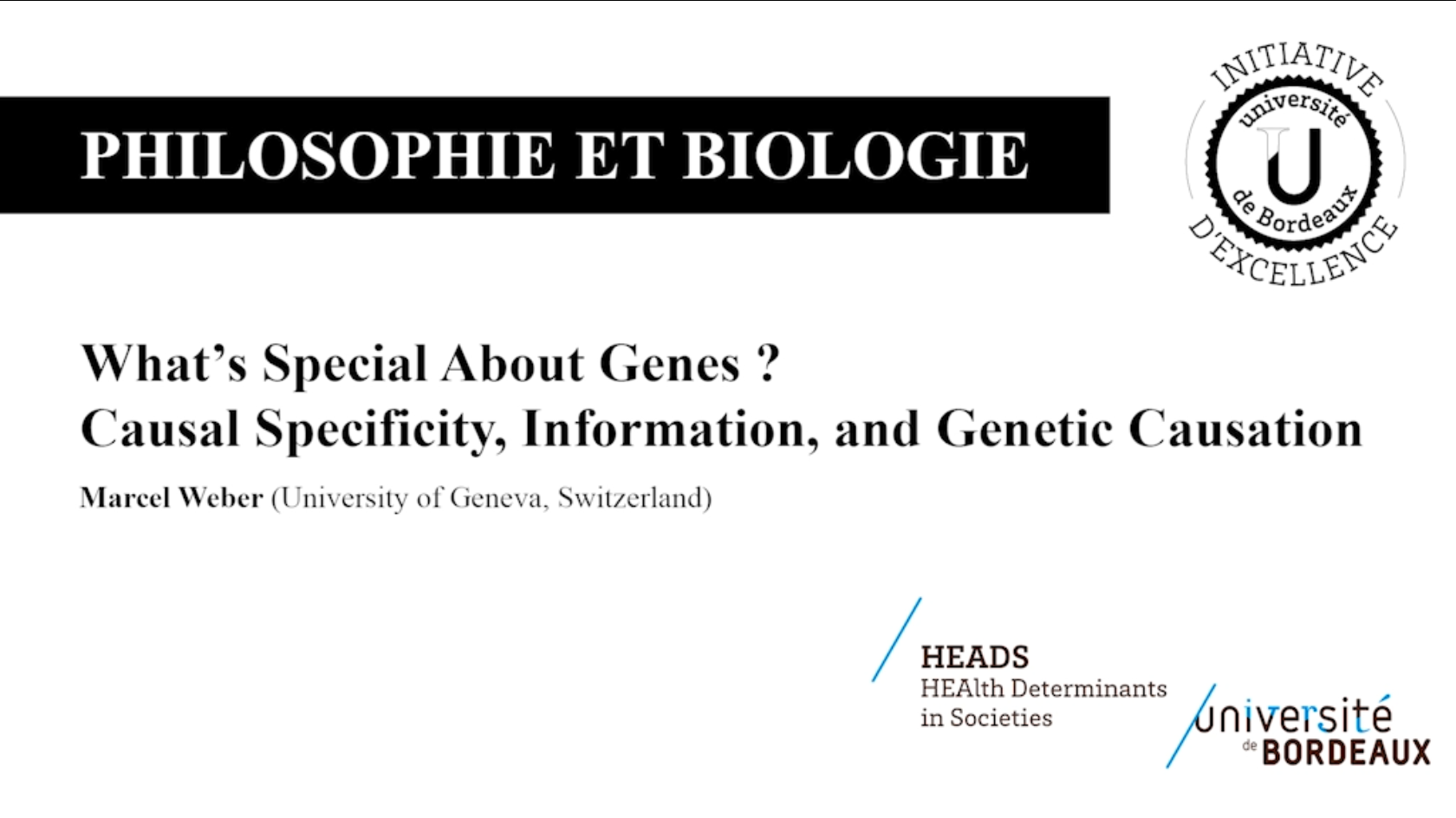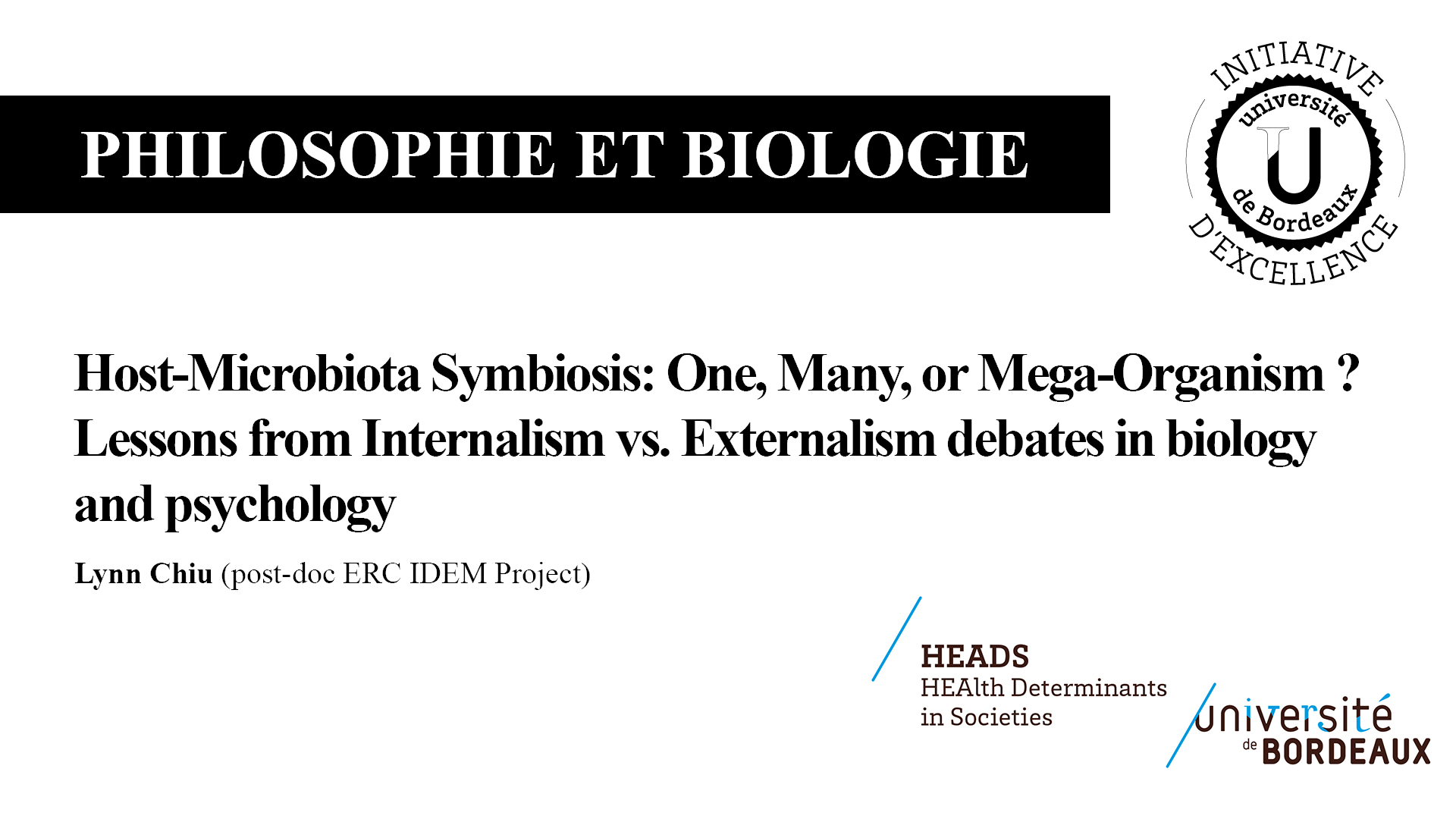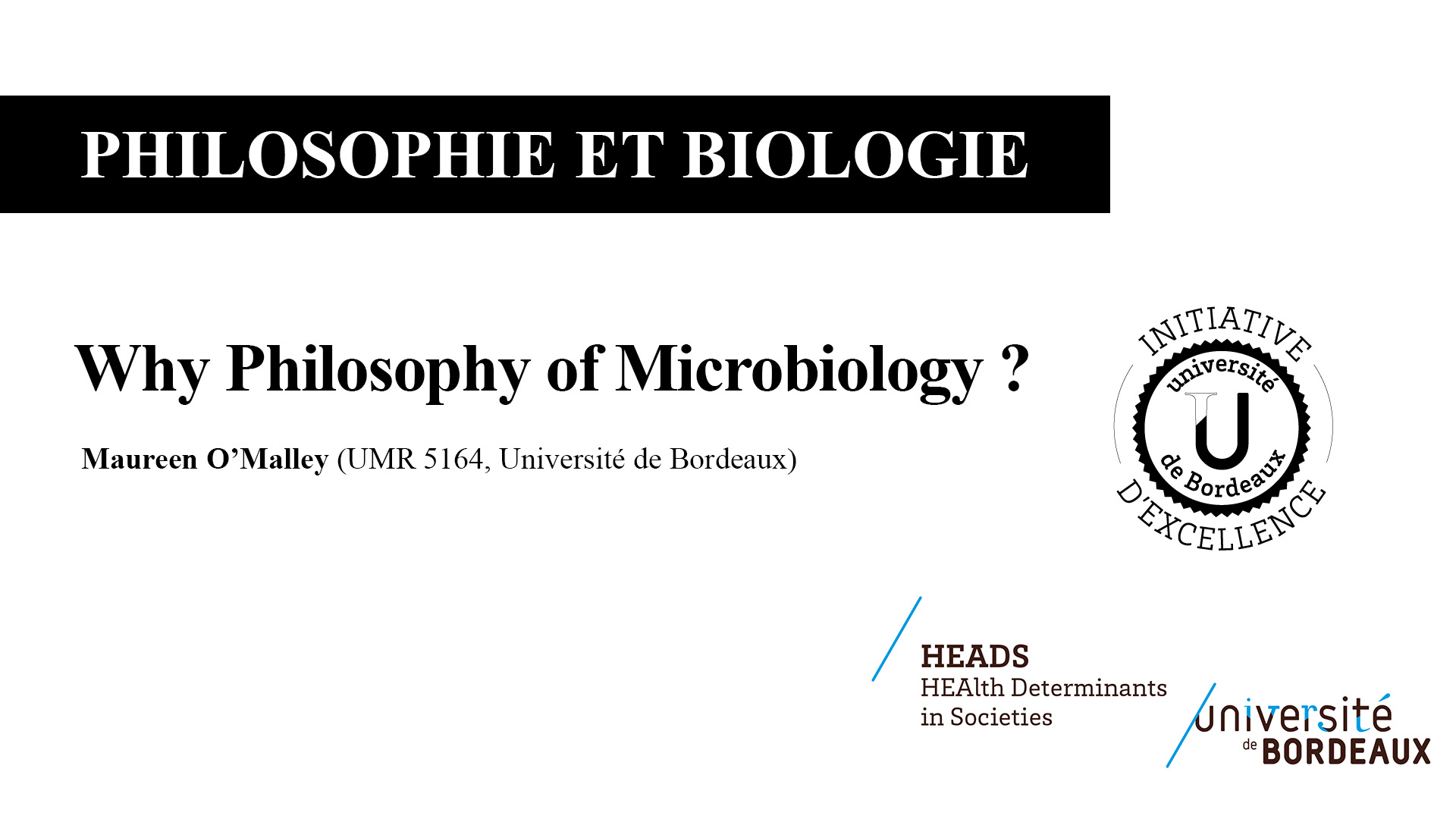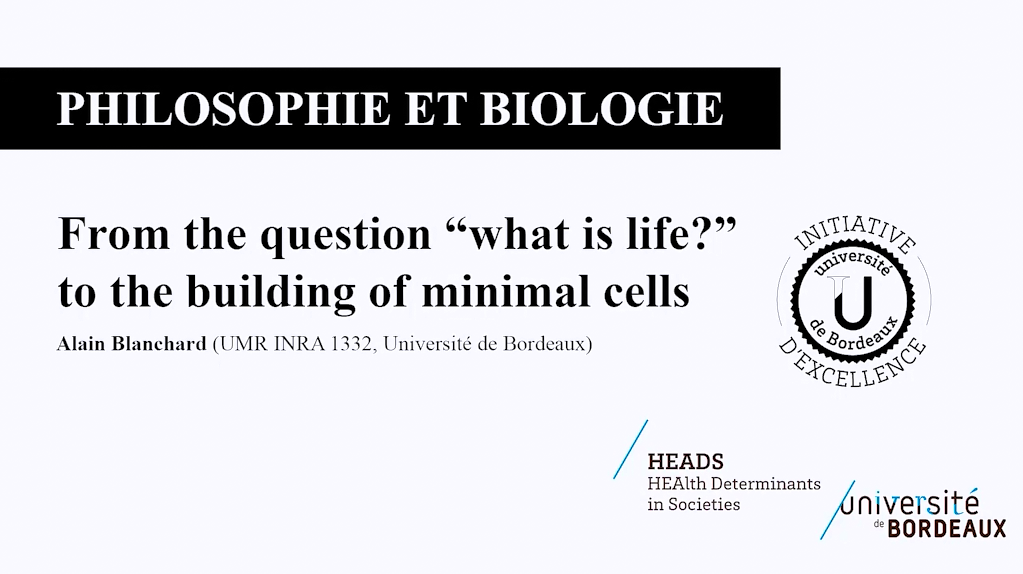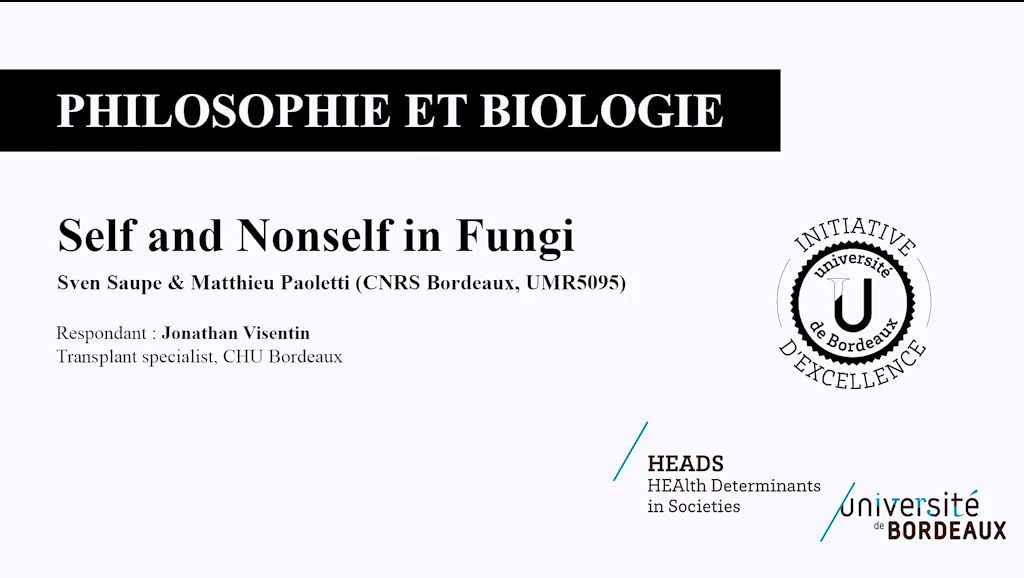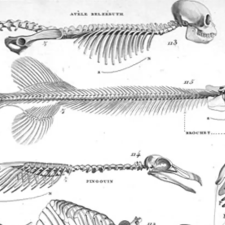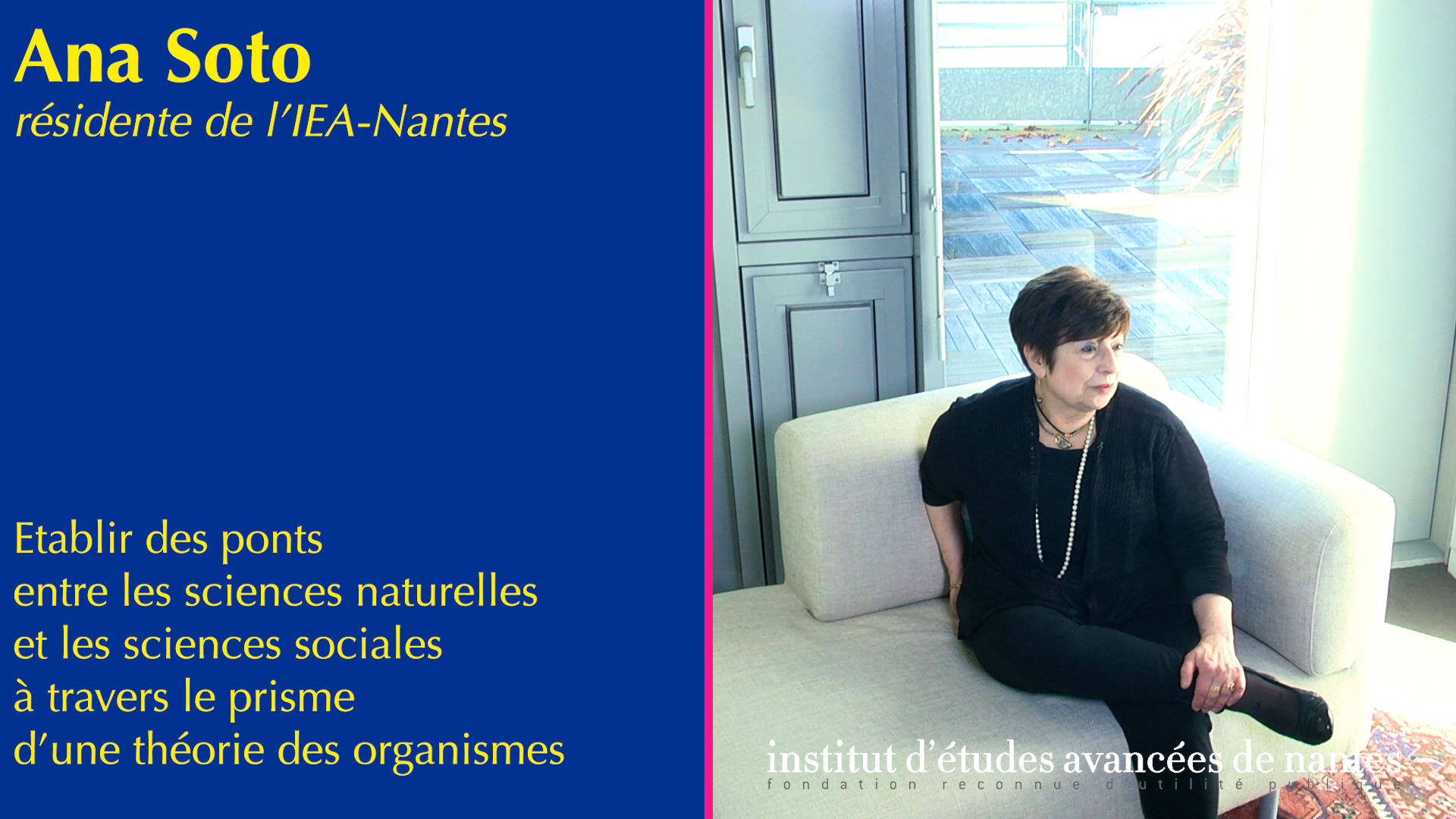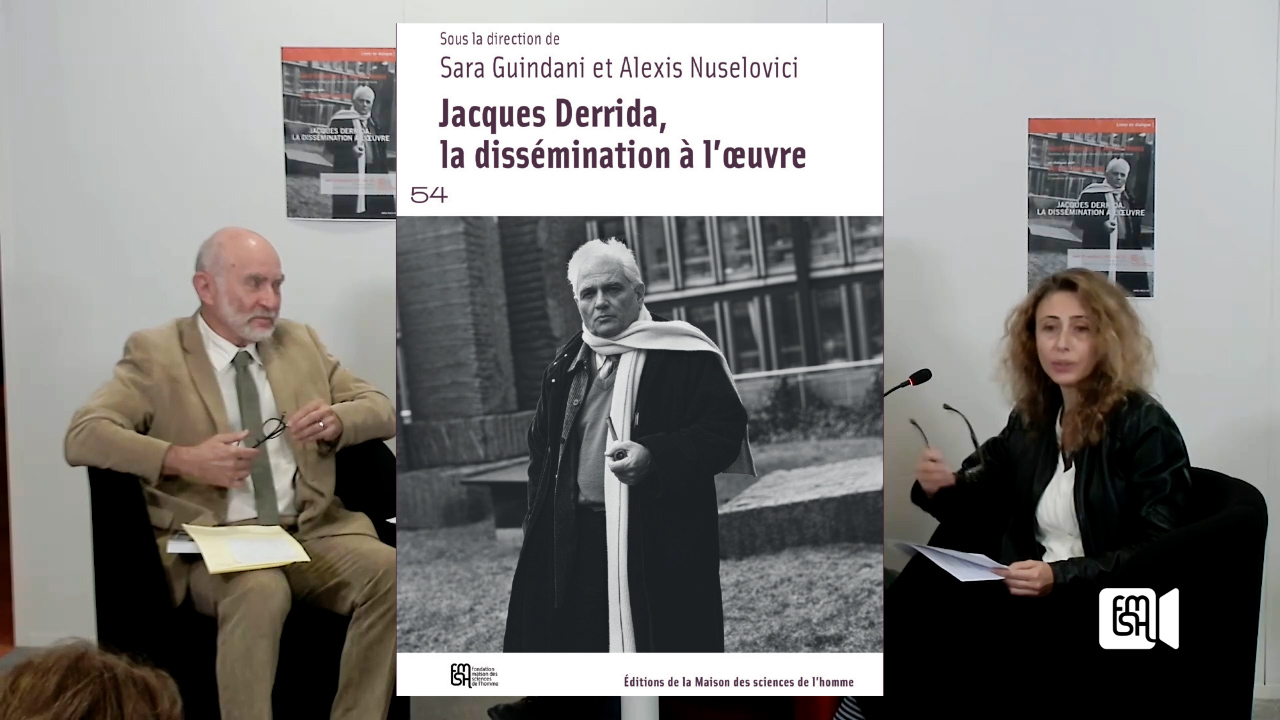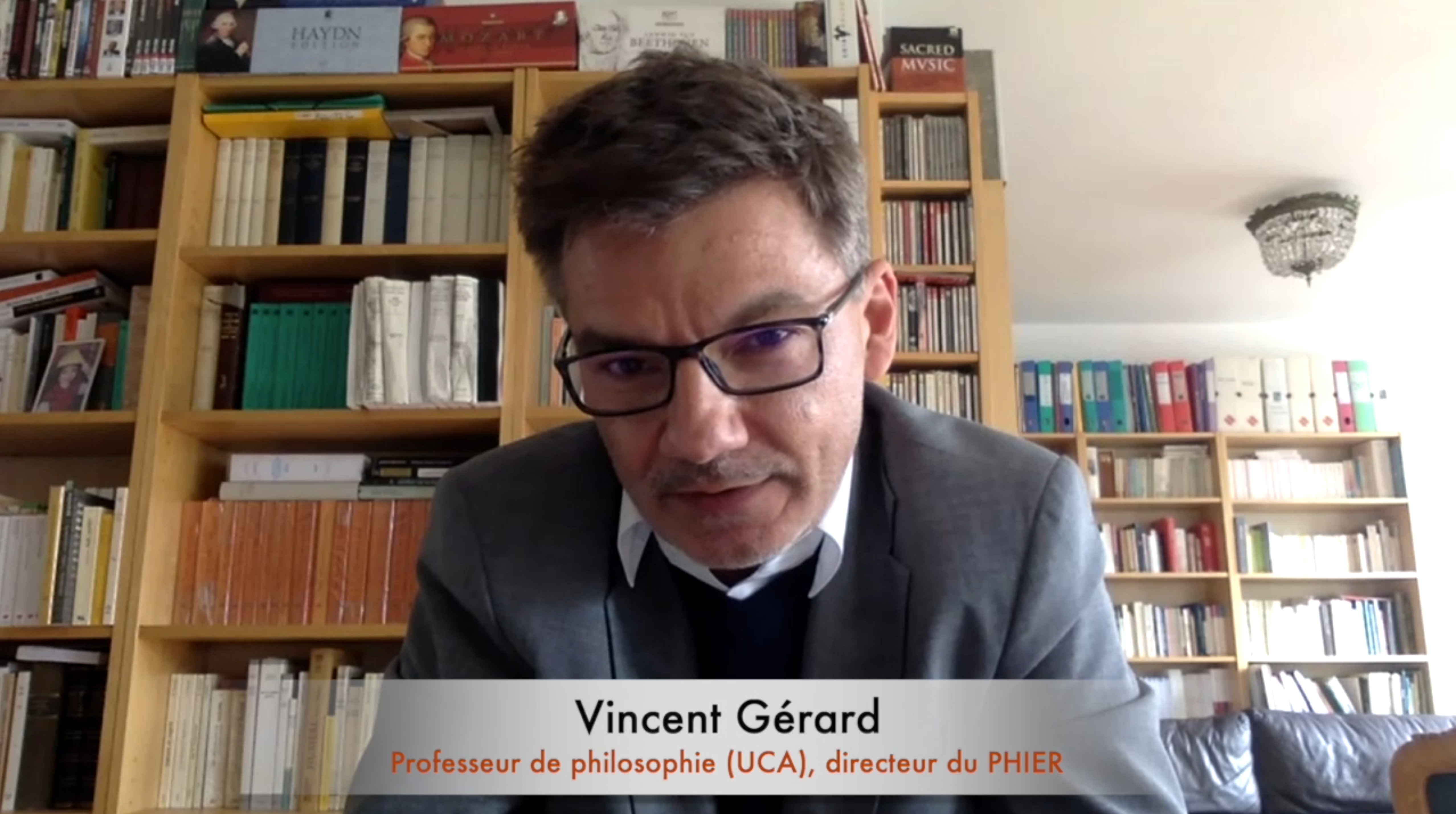Chapitres
- >> Introcing Ken Gemes, by Andreas Bikfalvi02'09"
- >> Introduction00'20"
- Caveats04'05"
- Aims of the talk00'58"
- The Rhetoric of Degeneration03'20"
- Darwin on Degeneration01'43"
- Degeneration : a manichean world view01'46"
- Nietzsche use the Rethoric of Degeneration03'41"
- Health as Disharmony02'49"
- Christianity as Pathology03'07"
- The Integration model of Health01'08"
- Integration through Sublimation01'22"
- Two case studies03'48"
- The point of sublimation : happiness as pleasure, contentedness01'21"
- The point of sublimation : happiness as eudemonia02'12"
- Nietzsche's negative appraisal of the extreme valorisation of compassion01'55"
- Conclusion01'13"
- Genealogy and value to the will to truth and the need for existential meaning02'43"
- >> Andreas Bikfalvi : Nietzsche's health04'06"
- Aristocratic biologism - Relation to degeneration theory00'35"
- Anti-darwinian posture01'44"
- The body as a war zone02'37"
- Relation Biology / Health and Ethics00'42"
- Nietzsche versus Russell03'44"
- Nietzsche and Faschism / Nazism02'30"
- Discussion02'14"
- - Pathology of changing, of movement ?02'53"
- - The great Health ?02'12"
- - Elimination of suffering02'15"
- - Nietzsche and curing 03'24"
- - Sublimation, self-overcoming...04'17"
- - What can we take from Nietzsche ?05'41"
Notice
Nietzsche's notion of Health
- document 1 document 2 document 3
- niveau 1 niveau 2 niveau 3
Descriptif
It is widely known that Nietzsche take himself to present a tremendous challenge to conventional morality. Many of his interpreters have been exorcised in trying to make precise the nature of that challenge. Here the attention has focused largely on the question of how his genealogical accounts of morality amount to a genuine challenge, rather than an instance of the genetic fallacy. Less attention has been paid to Nietzsche’s claim that morality involves a kind of pathology. This talk aims to expose some of the bases of Nietzsche’s idea about health and how they relate to his attacks upon morality and how they connect with his own positive values. Beyond Nietzsche scholarship this project aims to show us perspectives from which we might question are own accounts of health and values, both individual and social.
Intervention / Responsable scientifique
Dans la même collection
-
Philosophy of Science / Elliott Sober
SoberElliottElliott Sober est philosophe de la biologie à l’Université du Wisconsin. Dans cette interview avec Thomas Pradeu, il récapitule son parcours et présente sa vision de la contribution de la
-
The cell as an elementary organism: from Schwann to Brücke and Kölliker
DuchesneauFrançoisThis presentation is about the way cell physiology (Cellular physiologie) was born. Indeed, Schwann invented the cell theory in 1839, but his views on the cell were rapidly challenged and transformed
-
What does a ‘global history’ of biology bring to us ?
MorangeMichelTo write a global history of life sciences from Antiquity to extant research, from molecular biology to ecology and ethology is an impossible task, the promise to be inaccurate and wrong in many
-
What’s Special About Genes? Causal Specificity, Information, and Genetic
WeberMarcelPhilosophers of biology have recently been debating to what extent such nucleic acids that are said to carry genetic information (i.e., DNA or mRNA) really play a special role in development. A
-
Host-Microbiota Symbiosis: One, Many, or Mega-Organism? Lessons from Internalism vs. Externalism de…
ChiuLynnI will distinguish between three types of interactionist reactions to internalist or externalist theories. These theories assign specific theoretical roles to internal and external factors,
-
Why Philosophy of Microbiology ?
O'MalleyMaureen A.Microbes have only recently become the objects of sustained philosophical attention. Some of the reasons why philosophers now find microbes and microbiology interesting, and why philosophy of
-
From the question “what is life?” to the building of minimal cells
BlanchardAlainDepuis plusieurs siècle, la question du sens et de la nature de la vie est un sujet central en philosophie et en sciences. Nous avons désormais rassemblé, au moyen d'une approche expérimentale, un
-
Self and non-self in fungi
SaupeSvenPaolettiMathieuVisentinJonathanThe notion of self is a rich but ambiguous concept that is used in a wide array of academic disciplines including immunology, psychology and philosophy (in particular in different branches of
Avec les mêmes intervenants et intervenantes
-
A brief history of blood and lymphatic vessels
BikfalviAndreasAu cours de cette conférence, Andreas Bikfalvi retrace les grandes étapes de la découverte de la circulation sanguine et lymphatique, présente les connaissances actuelles sur le développement
Sur le même thème
-
L'unité de plan et de composition. La controverse de 1830 et ses retentissements
GrimoultCédricNouvelle conférence dans le cadre du programme de recherche Biohumanities de Gisèle Séginger, avec Cédric Grimoult.
-
Yves-Marie Allain : Sociétés savantes, pratiques naturalistes et nature en ville (XIXe-XXIe siècles)
AllainYves-MarieYves MarieAllain : Sociétés savantes, pratiques naturalistes et nature en ville (XIXe-XXIe siècles) Journée d'étude | Programme Biohumanities | Vendredi 22 octobre Nouvelle journée d'étude dans le
-
Louise Couëffé : Sociétés savantes, pratiques naturalistes et nature en ville (XIXe-XXIe siècles)
CouëfféLouiseSociétés savantes, pratiques naturalistes et nature en ville (XIXe-XXIe siècles) Journée d'étude | Programme Biohumanities | Vendredi 22 octobre Nouvelle journée d'étude dans le cadre du programme
-
Patrick Matagne, Sociétés savantes, pratiques naturalistes et nature en ville (XIXe-XXIe siècles)
MatagnePatrickSociétés savantes, pratiques naturalistes et nature en ville (XIXe-XXIe siècles) Journée d'étude | Programme Biohumanities | Vendredi 22 octobre Nouvelle journée d'étude dans le cadre du programme
-
Jerome Tabouelle, Sociétés savantes, pratiques naturalistes et nature en ville (XIXe-XXIe siècles)
TabouelleJérômeSociétés savantes, pratiques naturalistes et nature en ville (XIXe-XXIe siècles) Journée d'étude | Programme Biohumanities | Vendredi 22 octobre Nouvelle journée d'étude dans le cadre du programme
-
Guillaume Bagnolini, Sociétés savantes, pratiques naturalistes et nature en ville (XIXe-XXIe siècle…
BagnoliniGuillaumeSociétés savantes, pratiques naturalistes et nature en ville (XIXe-XXIe siècles) Journée d'étude | Programme Biohumanities | Vendredi 22 octobre Nouvelle journée d'étude dans le cadre du programme
-
Bénédicte Percheron : Sociétés savantes, pratiques naturalistes et nature en ville (XIXe-XXIe siècl…
PercheronBénédicteSociétés savantes, pratiques naturalistes et nature en ville (XIXe-XXIe siècles)
-
Nathalie Machon : Sociétés savantes, pratiques naturalistes et nature en ville (XIXe-XXIe siècles)
MachonNathalieSociétés savantes, Pratiques naturalistes et nature en ville (XIXe-XXIe siècles) Programme Biohumanities | Vendredi 22 octobre | Nouvelle journée d'étude dans le cadre du programme de recherche
-
Charles François Mathis : Sociétés savantes, pratiques naturalistes et nature en ville (XIXe-XXIe s…
MathisCharles-FrançoisSociétés savantes, Pratiques naturalistes et nature en ville (XIXe-XXIe siècles) Programme Biohumanities | Vendredi 22 octobre | Nouvelle journée d'étude dans le cadre du programme de recherche
-
#185 - Ana Soto - Établir des ponts entre les sciences naturelles et les sciences sociales à traver…
Les théories organisent la connaissance et construisent l’objectivité en encadrant les observations et les expériences.
-
SOIRÉE DE PRÉSENTATION DE L'OUVRAGE "JACQUES DERRIDA, LA DISSÉMINATION A L’ŒUVRE"
BourmeauSylvainGuindaniSaraNuseloviciAlexisÀ l'occasion de la parution de l'ouvrage Jacques Derrida, la dissémination à l'œuvre dans la collection "54", les Éditions de la Maison des sciences de l'homme organisent une soirée de
-
Comment s’orienter dans la crise ?
Proposée et organisée par la Maison des Sciences de l'Homme de Clermont-Ferrand et le PHIER, laboratoire Philosophies et Rationalités, cette web conférence, ouverte à toutes et à tous, s’est tenue le


